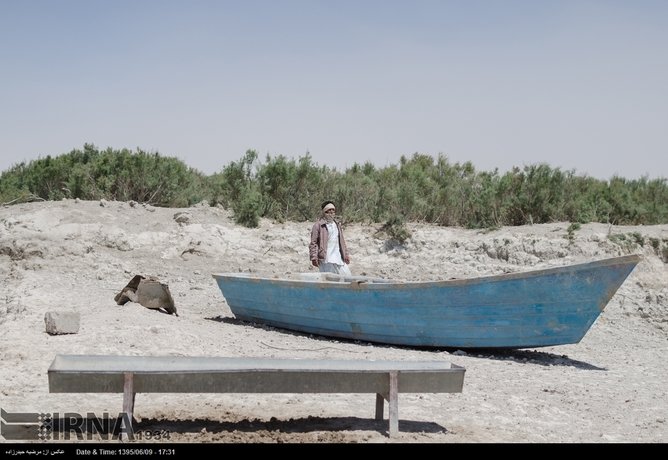Iran urges Afghanistan to resume talks on Hamoun wetlands

TEHRAN — Iran and Afghanistan should resume negotiations on the water rights of Hamoun wetlands, YJC quoted Masoud Tajrishi, deputy chief of the Department of Environment, as saying on Friday.
The Hamouns are transboundary wetlands on the Iran-Afghan border made up of three lakes: Hamoun-e Helmand, which is entirely in Iran, Hamoun-e Sabari on the border, and Hamoun-e Puzak, almost entirely inside Afghanistan. The three lakes are linked and fed by water from the Helmand River which starts in the Hindu Kush Mountains in Afghanistan.
When droughts occur in Afghanistan, or the water in watersheds that support lake is drawn down by other natural or human-induced reasons, the end result is a dry lake bed in Iran. In addition, when the lake is dry, seasonal winds blow fine sands off the exposed lake bed and give rise to crippling sand and dust storm in eastern and southeastern parts of Iran.
The sand is swirled into huge dunes that may cover a hundred or more fishing villages along the former lake shore. Wildlife around the lake is negatively impacted and fisheries are brought to a halt. Changes in water policies and substantial rains in the region hope to affect a return of much of the water in Hamouns. However, for the past few years the wetlands condition has only gotten worse.
Commenting on Afghanistan's injudicious dam construction on its tributaries Tajrishi also noted that low precipitation levels in the region has added insult to the injury.
“Iran and Afghanistan should reopen talks over the remaining water in Helmand River and discuss the water rights of the wetlands in Iran.”
He further underscored the importance of reaching a formal agreement with Afghanistan as the exposed lake bed is the main hotspot for debilitating sand and dust storms which cause great discomfort both for Iranians and Afghans as well.
Despite the recent rainfall the country is facing two challenges of water shortage and sand and dust storms, he warned, adding, almost all wetlands and rivers in the country are critically threatened by drought due to less rainfalls and the water stored in the dams is allocated to irrigation of farm lands.
According to the Atlantic Council (an American think tank in the field of international affairs) disputes over water between Iran and Afghanistan date back to the 1870s when Afghanistan was under British control.
In an exclusive interview with the Tehran Times published in October 2017, Afghanistan's Ambassador to Iran Nasir Ahmad Nour explained that Afghanistan has always adhered to the agreements stating the water right of the two countries. The ambassador also stated that all these times the water have been flowing into Iran and the fact that Hamoun is still dry has nothing to do with Afghanistan and Iran must look into the problem and find the reasons for the lake dryness inside the country.
MQ/MG
